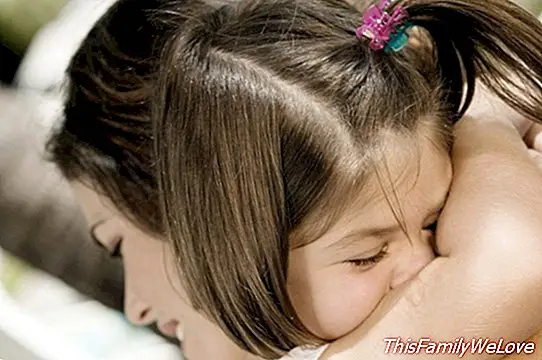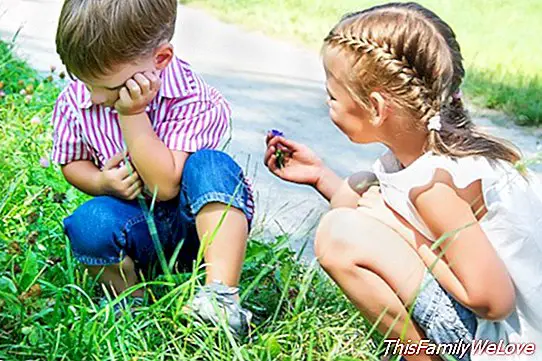Learn to ask for forgiveness


Young children have a self-centered, self-centered view of the world, so we should not be surprised that they do not apologize when they commit a bad action, or that they do not even repent. Looking ahead, know how to ask for forgiveness and forgive It will become an important key to freedom, an exercise that will give peace and tranquility. This attitude will be very useful in other relationships that will have to live as an adult.
The forgiveness reconciles us with ourselves and with the people we have lacked, it gives us back the joy and the desire to improve, that is why it is very important that since our children are very young, they know that forgiveness is the most powerful restorative what they will have in life.
Young children still have not developed in feeling of empathy and are not able to put themselves in the place of others. Teach a child to apologize it is a gradual process that requires effort and patience on the part of the parents to learn that the damage caused makes others sad, but that these mistakes can be corrected.
How to assume that we should ask for forgiveness

Let's not forget that the forgiveness is a expression of love: someone is forgiven for being loved, and forgiveness is asked for the same reason. Therefore, educating our son in forgiveness is educate your heart.
1. Put yourself in the place of others.Before teaching him to apologize for his faults, the child has to understand that he has made a mistake and what the consequences have been. The limits should be clear when the child is 2-3 years old and should know that if he passes those limits, he is misbehaving and will give us an upset, so we will get angry and probably take a punishment. It is necessary that the child knows why it is important to ask for forgiveness. He still does not know how to put himself in the other's shoes, that's why we should teach him, for example, how badly his little brother is doing when he hits him: "Look how your brother cries, would you like them to do the same to you?".
2. Repair the damage committed. The most important thing is that we offer him the opportunity to re-establish that damage, and that he sees that his actions have consequences and, therefore, he takes responsibility for them.
3. The example of the parents.Undoubtedly, our son will learn very well the comforting power of forgiveness if he sees us exercising it at home. Children especially hurt the rejection of others and, at these ages, much more if that rejection comes from us, their parents. If we are able to ask for forgiveness when we scold him for no reason or when we are wrong to blame him for something, our example will serve to positively reinforce this natural tendency towards reconciliation.
How to help you ask for forgiveness
- Explain clearly what he has done wrong and why it is wrong.
- To help you understand to understand the discomfort caused, we have to talk about feelings, asking how he would feel if they did the same to him.
- Teach him ways to apologize: to give your hand or a hug, a kiss, or simply to say that it was not your intention to do things wrong.
- Give it a little push if it costs: "I tell him that you feel it a lot and you give him a hug"
-Praise him When you have asked for forgiveness and emphasize how good you feel afterwards.
What we should NOT do:
- Label it: Look you're bad, there's no one to hold you
- Show him our discouragement: It's useless, you're always going to spoil everything ... With you better not to have illusions.
- Reach insult and disqualification, even without finding out: There is no stupider child! You are no more foolish because you can not!
- Humiliate and mock of the.
These attitudes will never help the child learn to ask for forgiveness, if not rather the contrary; will move away from this goal. Parents and educators must control ourselves against the mistakes and mistakes of the child, because reactions such as those listed will lead the child to think that in the face of the mistakes of others, only contempt and the intention of making the other feel bad by berating him.
Reflections on learning to ask for forgiveness
- When someone works badly, let's judge the factnot his person.
- Many children use the "I'm sorry" to get rid of a punishment. Let us teach him that asking for forgiveness is of no use if he later goes back to acting wrong.
- It is important that you learn to ask for forgiveness in its proper measure: that you do not slip away with a "I have not been" or "I'm not to blame" if you really have it, and let's teach assuming the consequences.
- Let's be an example for the child: to see us apologize naturally.
Conchita Requero
Advice: Carmen Ortega, family counselor.




